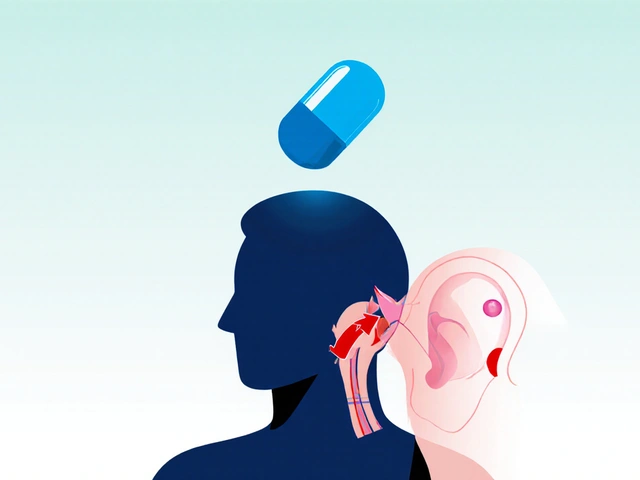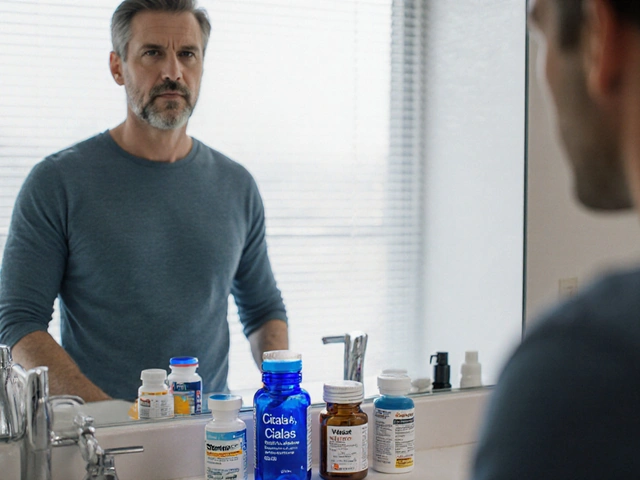
Understanding Sex Drive
Before we delve deep into the connection between contraception and sex drive, it's essential to understand what sex drive is. Sex drive, also known as libido, is one's desire for sexual activity. It varies from person to person and is influenced by a range of factors including biological, psychological, and social elements. A healthy sex drive is important for overall well-being and contributes to a satisfying and healthy relationship.
The Role of Hormones in Sex Drive
Sex drive in humans is largely dictated by hormones, particularly testosterone and estrogen. In men, testosterone plays a major role in regulating sex drive, while in women, a balance of both testosterone and estrogen is necessary. Hormonal imbalances can lead to a decrease or increase in libido. Understanding the role of hormones in sex drive is crucial when examining the impact of contraception, as many forms of contraception involve hormonal manipulation.
Contraception: Types and Functions
Contraception refers to methods or devices used to prevent pregnancy. Some common methods include barrier methods like condoms, hormonal methods like birth control pills, intrauterine devices (IUDs), and permanent methods like sterilization. Hormonal contraceptives work by altering the hormone levels in the body, which in turn affects the reproductive system and prevents pregnancy. However, these hormonal changes can also impact other aspects of health and well-being, including sex drive.
Contraception and its Impact on Sex Drive: The Connection
The connection between contraception and sex drive is not straightforward. Research suggests that hormonal contraceptives can lead to changes in sex drive. However, the effect differs from person to person. Some people may experience an increase in libido, while others may notice a decrease. This variance can be attributed to individual hormonal responses and the specific type of contraceptive used.
Understanding Decreased Sex Drive with Contraception
When it comes to hormonal contraception, a common side effect reported by users is a decrease in sex drive. This is primarily because these contraceptives suppress the natural cycle of hormones in the body, which can impact libido. For some, this decrease is temporary and subsides after the body gets used to the new hormone levels. For others, the decrease in sex drive may persist, leading to distress and dissatisfaction.
Understanding Increased Sex Drive with Contraception
On the flip side, some individuals report an increase in sex drive after starting hormonal contraceptives. This may be due to the reduction in fear of unwanted pregnancy, leading to a more relaxed and enjoyable sexual experience. Moreover, the regulated hormones may cause a boost in libido for some individuals. It's important to note that every body responds differently, and what works for one person may not work for another.
The Psychological Aspect: Anxiety, Stress, and Sex Drive
While the biological impact of contraception on sex drive cannot be denied, one must not overlook the psychological aspect. Anxiety and stress about unwanted pregnancy can significantly dampen one's sex drive. Therefore, the security provided by effective contraception can alleviate this stress, leading to an improvement in sex life. Additionally, the potential side effects of contraceptives, such as mood swings or weight gain, can also affect one's self-image and consequently, their sex drive.
Choosing the Right Contraceptive: A Personal Decision
The impact of contraception on sex drive is a crucial factor to consider when choosing a contraceptive method. However, it's not the only factor. One must also consider their overall health, lifestyle, comfort, and personal preferences. A decrease in sex drive shouldn't automatically lead to discontinuation of the contraceptive. It's important to discuss any concerns with a healthcare provider and consider all options before making a decision. Remember, the right contraceptive is one that works best for you.
16 Comments
Andrea Galetto
July 14, 2023 AT 03:54 AM
If you're experiencing low libido on birth control you're probably just not mature enough to handle your own biology. Stop blaming pills and start owning your desires.
Chris Remo
July 14, 2023 AT 11:21 AM
My ex was on the pill and swore it killed her sex drive. Then she switched to the copper IUD and suddenly we were having sex every other day. Weird how that works.
Michael Herr
July 14, 2023 AT 22:41 PM
Hormones are wild. I didn't think I'd ever say this but my libido spiked after starting the shot. Don't assume it's always a bad thing.
Crystal Magnant
July 15, 2023 AT 19:05 PM
I used to think it was me... until I stopped the patch and my desire came back like a tidal wave. 🌊
Danie Joy
July 15, 2023 AT 21:29 PM
They dont want you to know this but the government funds birth control so they can control womens desire. Its all about population reduction and suppressing the feminine energy. The patriarchy is in your pills
Katherine Stapp
July 16, 2023 AT 15:37 PM
America is the only country where women are told to just 'suck it up' when their libido dies from the pill. In Sweden they'd give you a new prescription and a spa day. We're falling behind.
Frank De Silva
July 16, 2023 AT 16:52 PM
You're all missing the point. The real issue is that modern medicine reduces sex to a biochemical equation. We've lost the mystery. The romance. The sacredness. This isn't about hormones - it's about spiritual decay.
KJ Miller
July 17, 2023 AT 05:46 AM
Hey everyone - if you're struggling with libido changes from contraception, you're not alone. Talk to your doctor. Try different methods. Your sex life matters. You deserve to feel good in your body. 💪❤️
Claire Battista
July 18, 2023 AT 04:21 AM
I went from the pill to the implant and my sex drive dropped so hard I thought I was broken. Took me six months to realize it wasn't me - it was the progesterone. Switched to copper. Life changed.
Erin DeGroot
July 19, 2023 AT 01:40 AM
It's important to acknowledge that while some people experience decreased libido, others feel more emotionally available and sexually confident with hormonal contraception. The experience is deeply personal and should never be minimized.
Stephanie Bryant
July 19, 2023 AT 21:54 PM
I had no idea the patch was killing my drive until I stopped it. Now I use condoms and I'm way more turned on. Also I think I spelled 'contraception' wrong in my notes lol
Drashti patel
July 19, 2023 AT 23:46 PM
In India we have this saying - 'jaise khet, waise phal'. As the field, so the harvest. Your body is your field. If the hormones are poisoned, the desire withers. But if you nurture it right - even with pills - it blooms. 🌸
Kaitlin Crockett
July 20, 2023 AT 14:58 PM
I tried everything. Pill, ring, shot. Only copper IUD gave me back my libido. No drama. Just facts.
Tracy Blake
July 21, 2023 AT 10:55 AM
Think about it - we live in a world where we can engineer a baby in a petri dish, but we still treat a woman's desire like it's a glitch in the system. Contraception isn't just about preventing pregnancy - it's about controlling the narrative of female sexuality. We're not just suppressing ovulation - we're suppressing autonomy. And don't get me started on how Big Pharma profits from our confusion. The real question isn't whether contraception lowers libido - it's why we've accepted this as normal.
Leo Lee
July 21, 2023 AT 11:16 AM
You Americans think everything is about hormones. In my country, we know sex drive is about culture, discipline, and respect. You take a pill and expect magic? No. You build desire through connection, not chemistry.






Daniel Rogers
July 13, 2023 AT 06:43 AM
Honestly this hit different after I switched to non-hormonal IUD. No more mood swings, no more low libido. Just me, my partner, and zero stress about pregnancy. 🙌